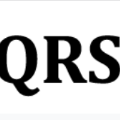Energy-Based Models (EBMs) allow for extremely flexible specifications of probability distributions. However, they do not provide a mechanism for obtaining exact samples from these distributions. Monte Carlo techniques can aid us in obtaining samples if some proposal distribution that we can easily sample from is available. For instance, rejection sampling can provide exact samples but is often difficult or impossible to apply due to the need to find a proposal distribution that upper-bounds the target distribution everywhere. Approximate Markov chain Monte Carlo sampling techniques like Metropolis-Hastings are usually easier to design, exploiting a local proposal distribution that performs local edits on an evolving sample. However, these techniques can be inefficient due to the local nature of the proposal distribution and do not provide an estimate of the quality of their samples. In this work, we propose a new approximate sampling technique, Quasi Rejection Sampling (QRS), that allows for a trade-off between sampling efficiency and sampling quality, while providing explicit convergence bounds and diagnostics. QRS capitalizes on the availability of high-quality global proposal distributions obtained from deep learning models. We demonstrate the effectiveness of QRS sampling for discrete EBMs over text for the tasks of controlled text generation with distributional constraints and paraphrase generation. We show that we can sample from such EBMs with arbitrary precision at the cost of sampling efficiency.
翻译:以能源为基础的模型(EBMS)允许极灵活的概率分布规格(EBMS),然而,它们并没有提供从这些分布中获取精确样本的机制。蒙特卡洛技术可以帮助我们获取样本,如果有我们可以轻易获得的样本,蒙特卡洛技术可以帮助我们获取样本;例如,拒绝抽样可以提供精确的样本,但由于需要找到一个能够向上限制目标分布的建议书分布,因此往往难以或不可能适用;Metropolis-Hastings等MonteCarlo链取样技术通常比较容易设计,利用对不断发展的样本进行当地编辑的当地投标书分布方法。然而,由于建议分布的当地性质,这些技术可能低效,不能对其样本的质量作出估计。在这项工作中,我们提出一种新的近似采样技术,即Qasi拒绝采样(QRS),允许在取样效率和取样质量之间进行权衡,同时提供明确的趋同和诊断。QRS利用从深学习模型中获得的高质量全球建议书分布方法,然而,这些技术可能效率低下,因为建议分布的当地性质,而不能对其样品的质量作出估计。我们用QRS抽样样本的精确性地展示了EBSmmmmmmmm 。


